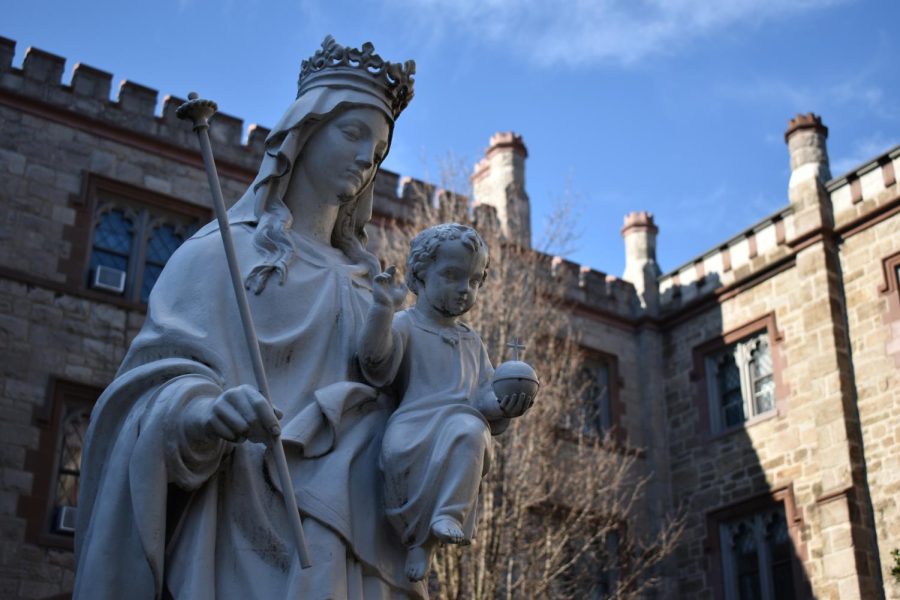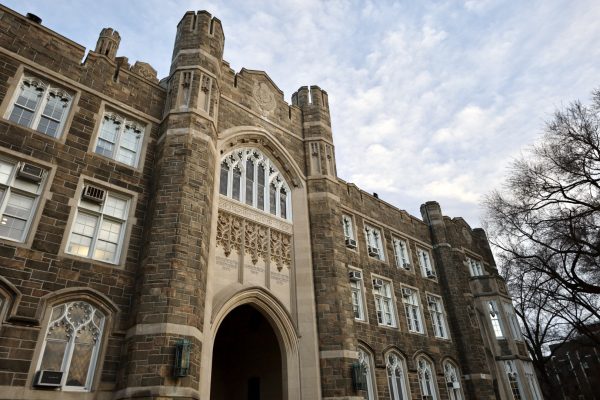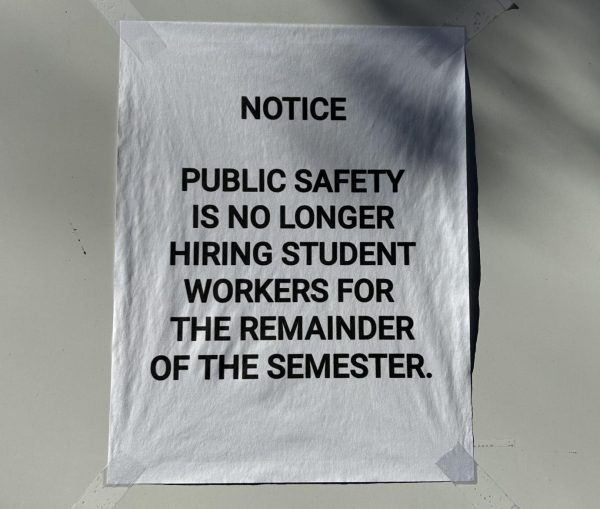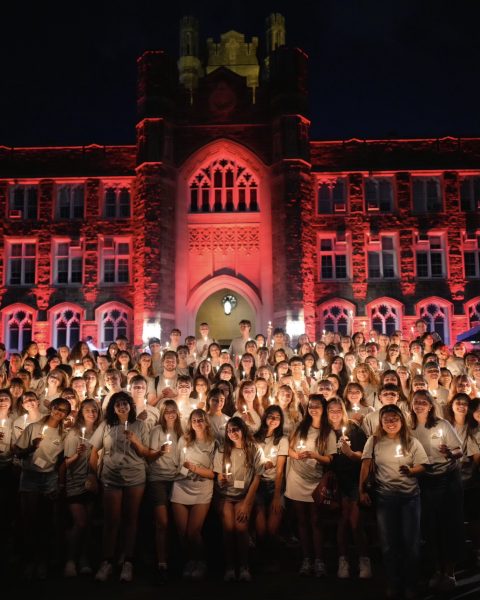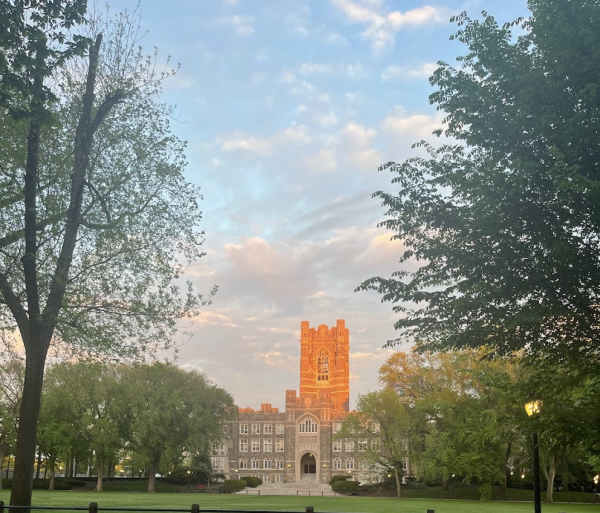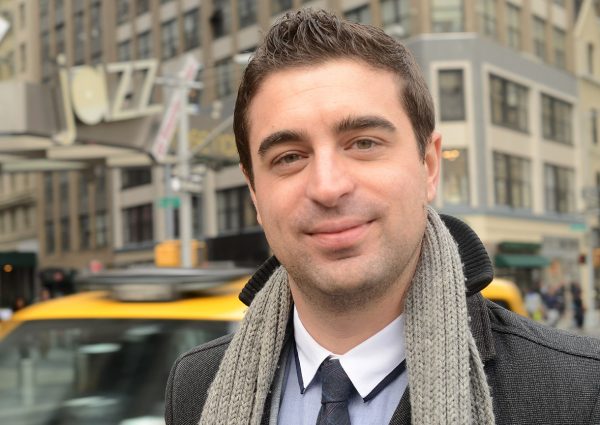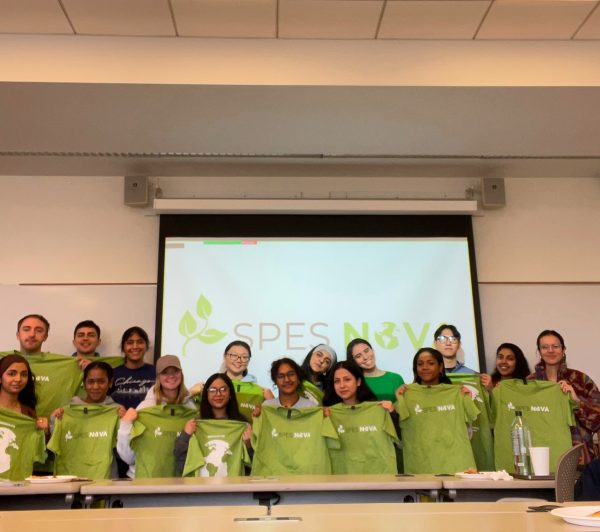How Catholic Are Fordham Students?
The appointment of President-elect Tania Tetlow, J.D., signaled a change in Fordham tradition. Tetlow will be the first layperson president of Fordham. This break of tradition could be representative of the greater trend of younger people straying away from religion.
Recent studies have shown that younger Americans are less likely than older adults to attend church, believe in God or say that religion is important to them. In addition, other measures of religious commitment find that younger people are less involved when compared to their adult counterparts.
This recent trend amongst young Americans seems to be consistent with changes in the university’s student population.
Analysis of data pertaining to the religious identification of Fordham students over the last ten years reveals a steady decrease in the number of undergraduate students who identify as Catholic.
According to statistics from the Office of Admissions, in 2012, 51.8% of students identified as Catholic while in 2021, 43.5% of students identified as Catholic.
While the changes in these numbers are not drastic, the data certainly displays a gradual, consistent decrease in Fordham’s Catholic student population.
However, other than a trend relating to Catholic students, there has been no verifiable trends in students who are choosing to identify as religiously unaffiliated or a marked increase in another religious affiliation.
Catholicism still remains the largest religious affiliation amongst the student body, but it is important to consider that these numbers do not reflect the extent to which Catholic students identify with or practice the religion.
Despite Fordham being a Jesuit institution, administration has taken note of this gradual decrease of Catholic students, and even encourages it, if it means building a more diverse student population.
“Fordham has been intentionally seeking to be a more diverse and inclusive institution. We believe that students with diverse experiences enrich our campus communities and that dialogues among faiths are encouraged as part of our Ignatian and Jesuit tradition,” said Patricia Peek, the dean of Undergraduate Admission and assistant vice principal.
The decrease in Catholic students has been small and it doesn’t seem to have made a difference in the number of students involved with Campus Ministry or activities that the department hosts.
“There are always students attending events and our different programs … We try to host programs that can speak to the souls of all different students on campus,” said Carol Gibney, director of Campus Ministry.
Despite the trend of the Catholic student population on campus, Campus Ministry has not explicitly made changes based on the decrease of Catholic students. In fact, they have not needed to make changes because they are primarily focused on the formation of student’s hearts and minds as well as supplying spiritual guidance, regardless of one’s religious identification.
“While academia and faculty focus on expanding students’ brains, student affairs and residential life programs focus on a student’s physical body, Campus Ministry attempts to focus on a student’s spirit,” said Gibney.
The inclusive nature of Campus Ministry may best be displayed by the accommodation of prayer rooms for Muslim students on both the Rose Hill and Lincoln Center campuses as well as the different religious student associations that receive guidance from Campus Ministry, including the Jewish Student Association (JSA) and the Muslim Student Association (MSA).
Campus Ministry’s diverse events and range of identifications among involved students is not a response to the religious composition of students or a growing secular tradition on campus, but rather a manifestation of the university’s Jesuit and Ignatian pedagogy.
“You don’t have to be Catholic to be part of the community … All students should feel welcomed to feed their faith and feed their souls regardless of their religion,” said Gibney.
While both the administration and Campus Ministry have recognized the shift in the religious composition of the student body, the university’s Jesuit values and practices promote an inclusive and comfortable environment where differences can be celebrated and included in the campus community.
For this reason, changes in the student population, as well as having our first layperson president, will not result in any extensive changes to practices amongst Campus Ministry.



































































































































































































